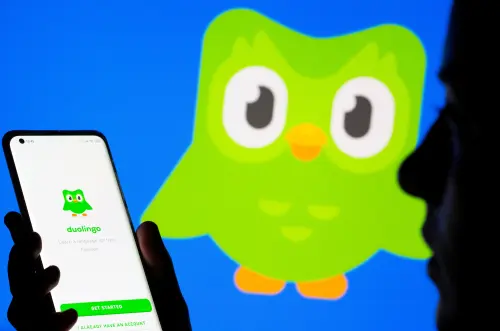On February 27, Duolingo, the language learning app, projected annual revenue exceeding Wall Street's expectations, fueled by the increasing adoption of its subscription tier featuring artificial intelligence capabilities.
Based in Pittsburgh, Pennsylvania, the company saw its shares rise approximately 4% in after-hours trading.
Duolingo follows a "freemium" model, offering a basic set of features to all users at no charge, with additional functionalities accessible through monthly or yearly paid subscriptions.
The app provides two subscription tiers - Super for enthusiastic users and Max, which incorporates a generative AI-driven feature enabling natural conversation simulations via video calls.
In recent months, Duolingo has expanded this feature to numerous languages to attract more subscribers and boost revenue. However, the video call feature within its Max subscription has increased costs.
The company anticipates 2025 revenue to fall within the range of $962.5 million to $978.5 million, slightly surpassing analysts' estimate of $965.9 million, as per data compiled by LSEG.
Duolingo's revenue projection for the first quarter ranges from $220.5 million to $223.5 million, slightly exceeding analysts' average expectation of $221.1 million.
According to Duolingo's Chief Financial Officer, Matt Skaruppa, "There's a marginal cost to Max." He explained, "that marginal cost is we call generative AI models to power what is the most important part of Max, which is the video call, and that did have about a 100-basis-point impact to gross margin."
Duolingo prioritizes innovation and quick experimentation to boost engagement, aiming for cost reduction over time.
The firm also estimates adjusted core profit in 2021 to range between $259.9 million and $274 million, slightly below the estimated $272.1 million, primarily due to expenses related to its AI video call features.
Duolingo credited the January buzz regarding the potential TikTok ban and a marketing stunt in which the app's mascot, Duo, staged his death and return for a surge in user numbers in February.
